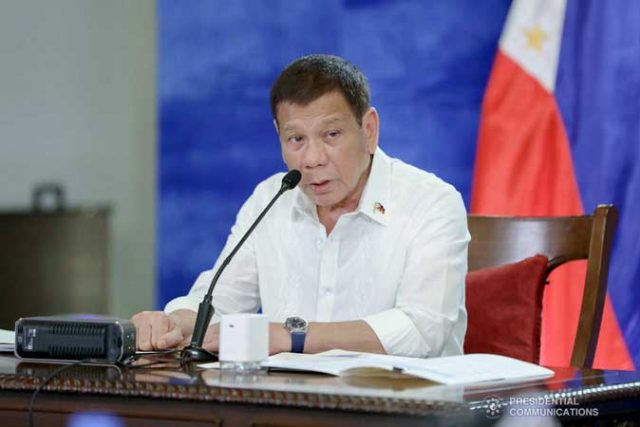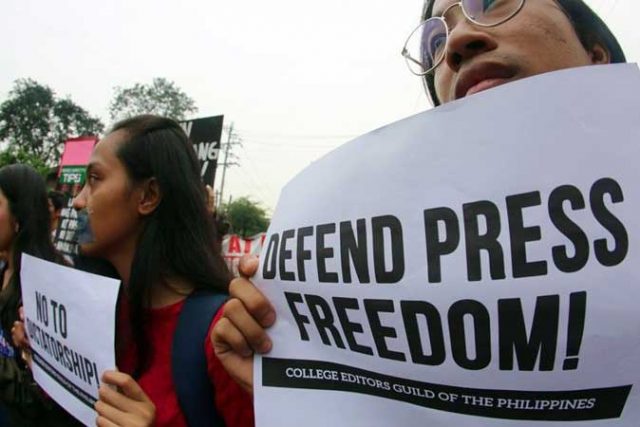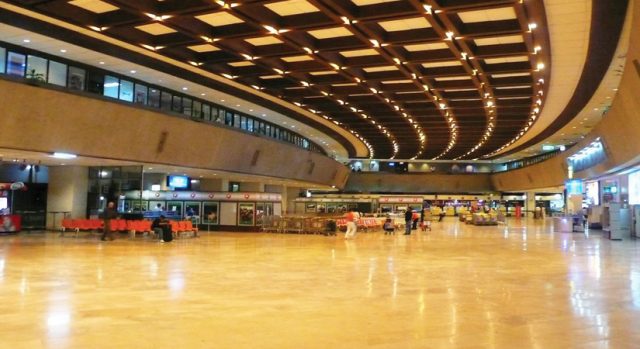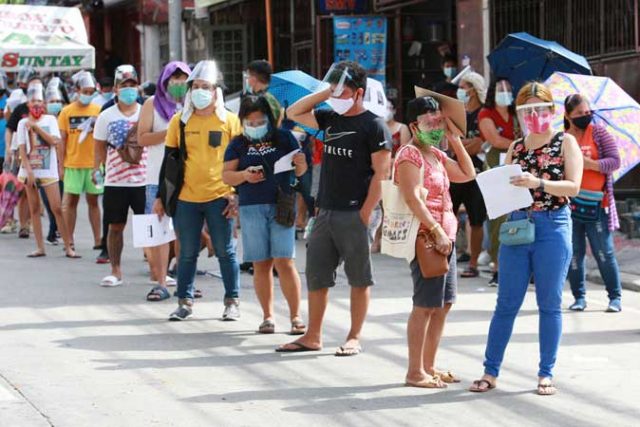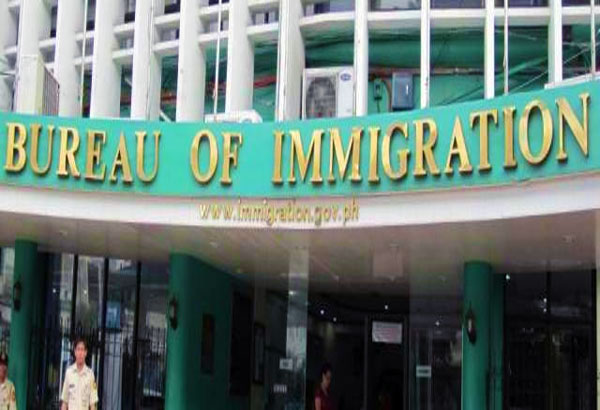Duterte to send warships if China drills for oil
By Kyle Aristophere T. Atienza and Vann Marlo M. Villegas, Reporters
PHILIPPINE President R. Rodrigo Duterte on Monday said he would only deploy warships to the South China Sea if Beijing starts drilling for oil and taking other key resources.
“I’m not so much interested now in fishing,” he said in a televised speech on Monday night. “I don’t think there’s enough fish really to quarrel about.”
¨But when we start to mine, when we start to get whatever it is in the bowels of the China Sea, then by that time, I will send my ships there. I will send my gray ships there to state a claim,” he added.
Mr. Duterte noted that once oil or nickel is taken from the sea, “that is the time that we should act on it.”
He said drilling oil from areas within the Philippines’ exclusive economic zone is not part of the country’s agreement with China.
“If it is not part of our agreement, I’m going to also excavate — to drill my oil there,” Mr. Duterte said. “If you own it, I own it. I do not want a quarrel but that is how it is.”
“The constructive occupation of the West Philippine Sea was completed by the singular act of China not retreating,” he said, referring to areas in the South China Sea within the country’s exclusive economic zone.
He blamed the government of his predecessor Benigno S.C. Aquino III for failing to maintain Philippine presence in the area.
Mr. Duterte said the Philippines would not be able to gain control of its territories in the disputed waterway “without bloodshed.”
The Philippines has fired off another diplomatic protest against China after authorities spotted a swarm of Chinese vessels, including six war ships within its waters in the South China Sea.
Two Houbei class missile warships were spotted at Mischief Reef, one Corvette class warship at the Fiery Cross Reef and one navy tugboat at Subi Reef, according to a Philippine task force on border security.
Two Chinese coast guard vessels were also spotted at Thitu Island, which the Philippines calls Kalayaan, according to a report based on patrols by Philippine authorities on April 11.
The Philippine task force said more than 200 Chinese ships were scattered in waters within its exclusive economic zone. About 15 vessels either manned by Chinese militia, People’s Liberation Army Navy or the Chinese Coast Guard had also been spotted at the Scarborough Shoal.
Meanwhile, about 240 Chinese vessels that China claims are ordinary fishing vessels have spread out to a wider area in the South China Sea, the agency said. The ships allegedly manned by Chinese maritime forces were scattered across the Spratlys, about 175 nautical miles west of Palawan province, it added.
It said 136 vessels were seen at Gaven Reef and more than 60 vessels were at McKennan Reef.
The rest of the ships were scattered in other parts of the disputed territory — 11 at the Second Thomas Shoal, nine at Whitsun Reef, six at Mischief Reef, five at Loaita Island, four at Thitu Island, three at Subi Reef and one at West York Island. The ships were about 60 meters long.
The Philippines has summoned China’s ambassador to convey its “utmost displeasure” over the continued presence of Chinese militia vessels at Whitsun Reef.
Mr. Duterte has said provoking Beijing into war over the disputed waterway would only lead to the massacre of government troops.
His spokesperson Herminio “Harry” L. Roque, Jr. earlier said the government would try to resolve the conflict peacefully, adding that the President would rather deal with Beijing privately.
NO SURRENDER
Also on Tuesday, Senator Panfilo M. Lacson said Mr. Duterte should not imply surrendering the country’s territory in the South China Sea to China.
The commander-in-chief of the Armed Forces “can think of anything and speak about anything except surrender.¨
“We have an arbitral ruling in our favor and it’s permanent although it’s unenforceable,” he told CNN Philippines. “There are so many things to think about except surrender. We cannot wave the white flag, so to speak.”
“I am not saying the President is actually raising the white flag but that’s the implication,” Mr. Lacson said. “If the officers and men of the AFP would take it that way, it could be disastrous to Philippine sovereignty.” Mr. Lacson also said that the Philippines can build stronger allies with other countries such as Japan and the United States.
The Philippines can also conduct joint military exercises with other countries like the US and Australia.
Senator Grace Poe-Llamanzares said the country should assert its sovereignty in the South China Sea.
The country should also seek the aid of neighboring countries and allies, while bringing the issue to international attention, she said in a statement.
Senator Risa N. Hontiveros-Baraquel said Mr. Duterte had surrendered Philippine sovereignty.
“The President may see no other option other than letting China take control of our waters, but the Filipino people are not ready to give up,” she said in a statement.
Meanwhile, Mr. Duterte said he felt “downhearted” when he learned that members of the military had planned to withdraw their support for him for his alleged inaction on the China issue.
Mr. Roque earlier said Mr. Duterte was not bothered by rumors of military discontent.
“If we cannot work together, maybe we cannot work together on bigger things. So what’s the point?” Mr. Duterte said in his speech.
Mr. Duterte said Defense Secretary Delfin N. Lorenzana had given him a document that was “full of arrogance.” A general whom he did not name was involved, he added.
Mr. Duterte said he would step down and go home to Davao City if the military wanted him out.
“If I cannot have the cooperation of the Armed Forces, then there is no point in working for this government.”
Still, the President said he would rather appoint retired military officers rather than civilians to the government. “If I rely on civilians, we’re dead. So if I want things, it’s really the military.”

